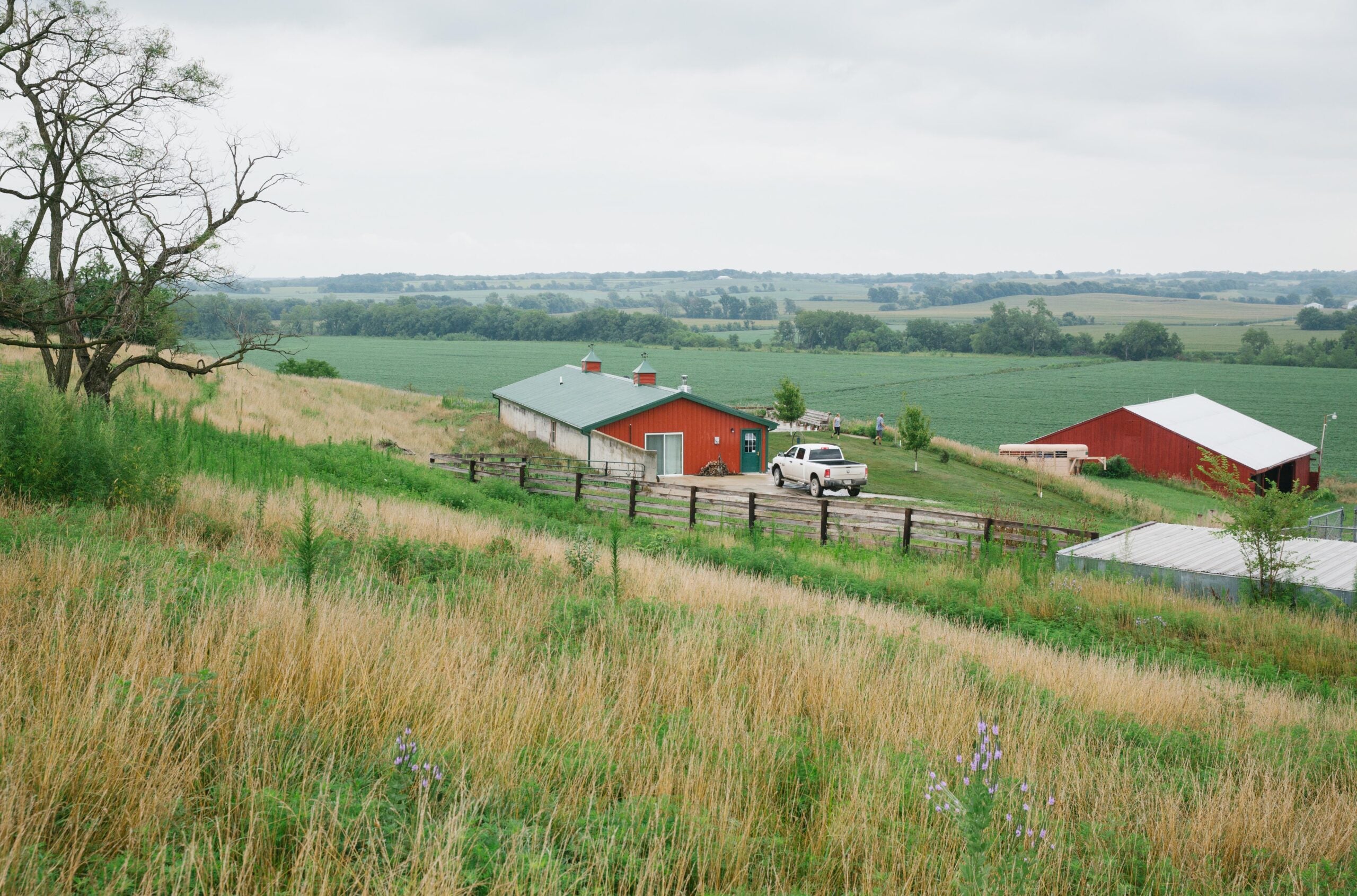House Farm Bill Squanders Environmental Opportunities
With provisions to rollback climate-smart agriculture provisions, weaken environmental laws, and offer handouts to polluting industries, the House Farm Bill is the culmination of a toxic partisan process.
Farmers are on the frontlines of climate change, directly experiencing severe weather, floods, and droughts that threaten both their lives and livelihoods. They also can be part of the solution. Similarly, forests are one of our greatest buffers against climate change, if conserved and managed appropriately.
This year’s Farm Bill reauthorization could provide us with an opportunity to build on climate-smart programs that are in high demand and already in use by many farmers across the country. Instead, the current House version of the bill hinders this progress. It threatens to dismantle critical conservation investments from the Inflation Reduction Act, expose more farmers and our food supply to climate disasters, and undermine the ability of our public forests to serve as natural climate solutions. Here are four ways the House Farm Bill would hurts farmers, communities, and forests:
- Thwarts Climate Progress in Agriculture: When Congress passed the Inflation Reduction Act in 2022, it included nearly $20 billion for climate-smart guardrails in USDA conservation programs, so farmers seeking to reduce greenhouse gas emissions had access to federal funding and assistance. The current House Farm Bill rescinds those guardrails, diverting funds from proven practices like cover cropping to instead help subsidize large equipment purchases and costly practices under an expanded definition of “precision agriculture.” The problem? There is a large demand for these conservation programs that often exceeds funding. Conservation programs like the Environmental Quality Incentives Program (EQIP) and Conservation Stewardship Program (CSP) pay farmers to implement voluntary conservation practices on their land, with an eye towards emissions reductions and soil and water quality, among others. Farmers wanting to participate oftentimes are turned away. The Natural Resources Conservation Service (NRCS) this year alone turned away 74% of EQIP applicants and 60% of CSP applicants. Without these investments to help them implement resilient practices and adapt to climate change, agriculture sector emissions could increase 32 percent by 2050. Moreover, the House proposal lacks in its protection of other climate initiatives, such as prohibiting solar production on converted covered farmland, failing to fund the Foundation for Food & Agriculture Research (FFAR) program, which invests more than 20% of its funding towards climate mitigation and received $185 million in mandatory funding in the last two Farm Bills, and codifying funding for the Climate Hubs, a non-partisan research consortium that offers cutting edge tools that farmers use daily, like the Drought Monitor.
- Puts Corporate Profits Over Health: All communities, from the farmworkers who pick our food, to those who buy it on supermarket shelves, to children and teachers, deserve to be free from the negative health impacts of dangerous pesticides. Instead, this Farm Bill strips state and local governments’ ability to protect their communities and would result in the elimination of hundreds of local bans on the use of pesticides around parks, schools, and drinking water supplies. The bill also absolves chemical companies from liability when their dangerous pesticides harm the public and ties the hands of the Environmental Protection Agency to protect communities, wrongly prohibiting the EPA from taking any action on a pesticide that is inconsistent with a previous risk assessment—regardless of how outdated that assessment may be.
- Undermining Nutrition Programs: More than 40 million families, seniors, veterans, and people with disabilities access food through the Supplemental Nutrition Assistance Program (SNAP), the nation’s largest and most important anti-hunger program. The current Farm Bill proposal freezes any future updates aside from inflation adjustments to the Thrifty Food Program (TFP), the basis for calculating SNAP benefits. The limits placed on TFP diminish the purchasing power of SNAP recipients, cut SNAP benefits by $30 billion over 10 years, and weaken the program’s ability to meet its core mission—ending hunger and food insecurity.
- Weakening Environmental Protections for our Forests: The current House bill continues the Republican-led assault on our bedrock environmental protections. It severely undermines the National Environmental Policy Act (NEPA) and Endangered Species Act (ESA) with new categorical exclusions and massive expansions of existing categorical exclusions while failing to protect communities from wildfire. Additionally, it removes the requirement to reinitiate consultation of land management plans when new information indicates they may be harming endangered species. In an incredibly egregious handout to the logging and biomass industry, the bill would declare that woody or forest biomass as well as related facilities like landfills automatically have a greenhouse gas emission rate or carbon intensity of zero or less and are somehow ‘carbon neutral’—against all scientific reasoning. These forest provisions are yet another effort to remove science and public participation from decision-making processes, putting communities and habitats at risk from polluting industries.
In its current form, the House Farm Bill fails to meet the moment and address our current challenges. A partisan process like this one is proving to be detrimental to the farmers and families across the country dependent on robust Farm Bill funding. We need a bipartisan process that provides unwavering support to our nation’s farmers, invests in climate solutions, and respects science-based, sustainable, and justice-driven decision-making. We can’t afford anything less.
Established in 1989, Earthjustice's Policy & Legislation team works with champions in Congress to craft legislation that supports and extends our legal gains.
Geoffrey Nolan
Public Affairs and Communications Officer, Earthjustice
gnolan@earthjustice.org
